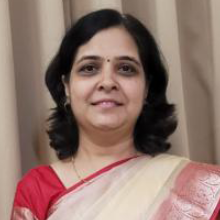
Rachana Yogesh Patil
Work place: Department of Computer Enginerring, Pimpri Chinchwad College of Engineering, Pune, Maharashtra, India
E-mail: rachana.patil@pccoepune.org
Website: https://orcid.org/0000-0001-9973-6998
Research Interests:
Biography
Rachana Y. Patil received her Ph.D. in Computer Engineering from the University of Mumbai, India, in 2020. She has authored more than 80 publications in peer-reviewed international journals and conferences. Her research interests include Cryptography, Network Security, Cybersecurity, and Digital Forensics, with a particular emphasis on Network Forensics. She currently serves as the Head of the Department of Computer Engineering at Pimpri Chinchwad College of Engineering (PCCOE), Pune, India. Dr. Patil is a member of IEEE, ACM, and IETE.
Author Articles
A Structured Project-Based Learning Pedagogy to Bridge the Theory–Practical Gap in Blockchain Education
By Rachana Yogesh Patil Rahul Kulkarni
DOI: https://doi.org/10.5815/ijmecs.2025.06.06, Pub. Date: 8 Dec. 2025
Traditional educational institutions prioritize theoretical education over hands-on practical skills which produce a gap between classroom learning and industry requirements particularly in the fast-growing blockchain sector. A structured case study demonstrates how Project-Based Learning (PBL) was implemented in an undergraduate engineering course which focused on blockchain technology. The educational approach evolved through four stages that combined theoretical instruction with collaborative solution creation and DApp programming and assessment evaluation. Performance metrics from students including testing coverage, GitHub contributions, documentation quality and research paper output are carefully analyzed through algorithmic guidance of each phase. The paper demonstrates the development of teaching methods through traditional practices and outcome-based instruction up to project-based learning supported by visual timeline comparisons. Student feedback demonstrates that the education methods led to enhanced technical abilities together with teamworking and increased student confidence. The case study demonstrates how PBL functions as an educational connection between academic learning and practical blockchain development needs because most teams (over 75%) finished functional DApps alongside several groups producing research suitable for publication.
[...] Read more.Other Articles
Subscribe to receive issue release notifications and newsletters from MECS Press journals